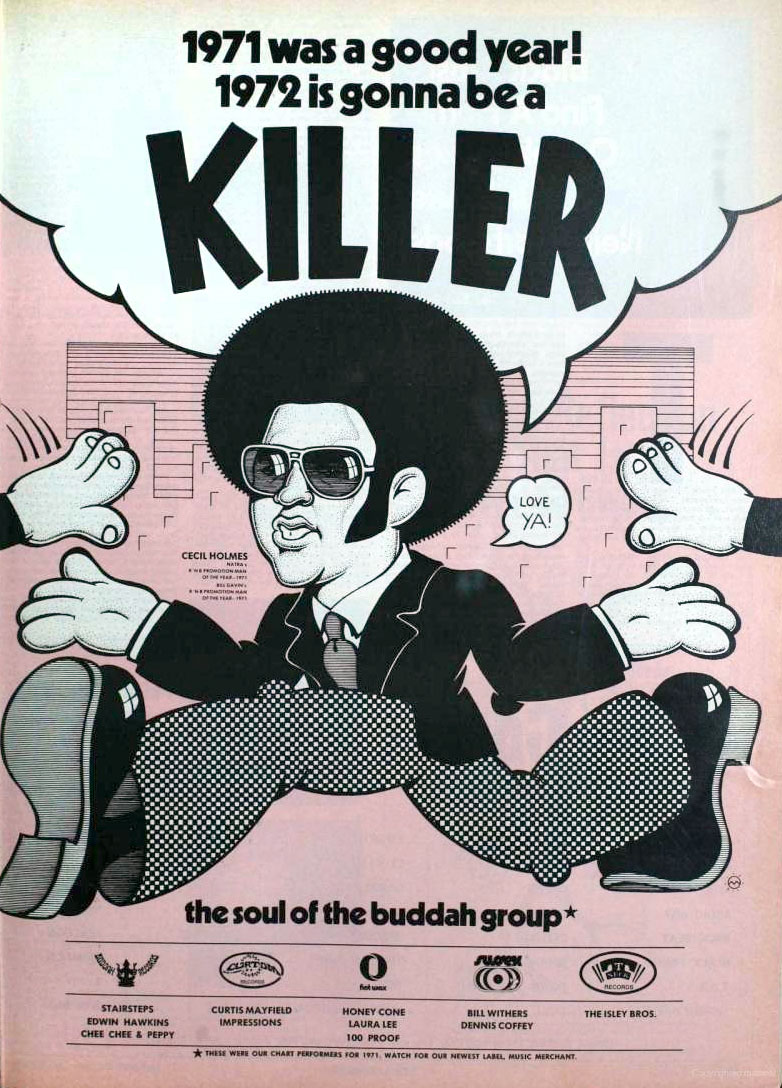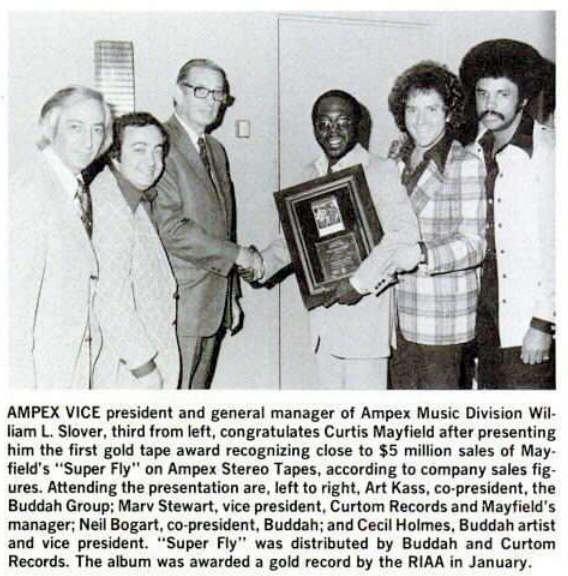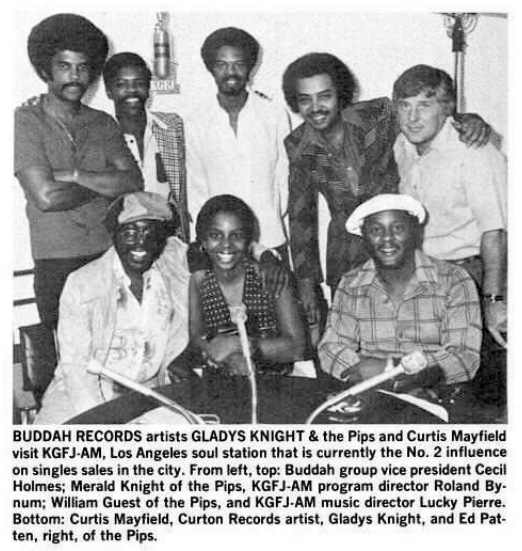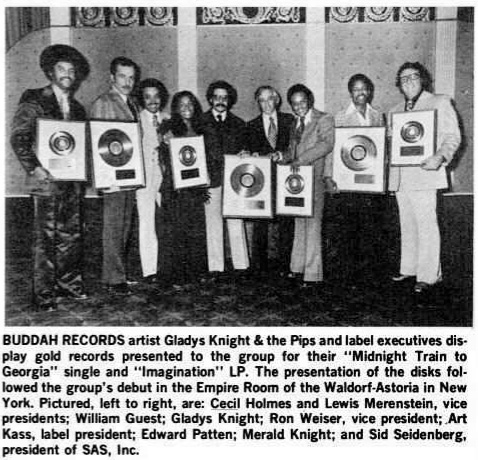I did indeed do the liner notes for this one, and I know this probably wasn't really on anyone's radar but I hope people will give it a chance.
Cecil Holmes was a pretty interesting guy, and I think of the liner notes I've written so far this one is maybe the one I've been most happy with after completing it. For most albums or artists you can simply type their name in to google and get a wiki page or biography, but with Cecil Holmes that isn't really the case. His wiki page is about two sentences long and the other information out there about him seems pretty scant as well. There may have been a biography or story about him in a magazine somewhere at some point, but I didn't really find anything extensive in my research, so as far as I know these liner notes represent the first time his story (and the story of the two 'Soulful Sounds' albums) has been told. Holmes was actually one of the most influential black A&R men of the 60's, 70's & 80's - he started out at Cameo-Parkway, moved to Buddah with Neil Bogert where he was a VP (and worked with Curtis Mayfield, the Isleys and Gladys Knight), and then when bogert started up Casablanca, he brought in Holmes as a founding partner and VP. When Holmes was at Casablanca, he worked with Donna Summer (as bmoura noted) but he also set up Chocolate City Records, discovered Cameo (the band), and brought George Clinton's Parliament to national attention by helping to fund and promote some of Parliament's crazy tours which featured life-size 'mothership' spaceship props and so on. When Casablanca blew up he moved to CBS and worked with Michael Jackson, Marvin Gaye and Luther Vandross in the early 80's - truly a guy who was involved with some of the best R&B for parts of three decades.
Holmes was obviously the face of these albums, but really they were created by Tony Camillo. He was basically an in-house producer for Buddah and had just done Gladys Knight and The Pips 'Imagination' album for the label (it's the album that includes Midnight Train To Georgia) and he basically used all the same session players that played on that album for the two Soulful Sounds albums, and there are some real heavy-hitters including motown guys like Bob Babbitt and Andrew Smith, and NYC guys like Randy Brecker and Jeff Mironov.
Basically, these albums (for me anyway) fall in to the category of 'way better than they have any right to be'. I think when you see these on paper they probably have the look of some cheap K-Tel cash-in, where a bunch of lame studio musicians suck the soul out of some great music. Obviously these albums are never going to replace the originals in anyone's mind, but there are some really fun arrangements and some great playing - I actually like version of 'I'm Gonna Love You Just A Little More Baby' on here better than Barry White's original version. The quad mixes are also great, and very discrete - because they weren't done with any matrix quad system in mind they don't have any of the mixing limitations that SQ or QS mixes did.
I also dispute bmoura's assertion that these are 'easy listening' albums, especially the Black Motion Picture Experience LP. They do share the similarity with easy listening records in that they're (mostly) instrumental versions of popular songs, but for me that's where the similarity ends. Easy listening for me always seemed to be about taking pop hits and shaving off any of the sharp corners and heaping as much orchestration on top as possible. The Black Motion Picture Experience was actually promoted with the tagline 'There Can Never Be A Party Without It Again!' - it was basically promoted as the 1973 LP version of a mixtape or an iPod on shuffle for social occasions. These two records are every bit as immediate and gritty as the albums the songs they're covering come from, and in the case (again) of Black Motion Picture Experience, I think some of the tracks are actually even a bit grittier than the originals. These two albums have been super-popular with DJ's and rap producers because they feature some really great funky drum breaks - not the sort of feature you'd find in an easy listening record.
I thought I'd include a few bits and pieces about Cecil Holmes from around the time these two albums came out that I found in the course of my research, to give you a bit of a flavour of the man...
Billboard June 30th, 1973
Billboard Oct 20th, 1973
Billboard December 15th, 1973



























